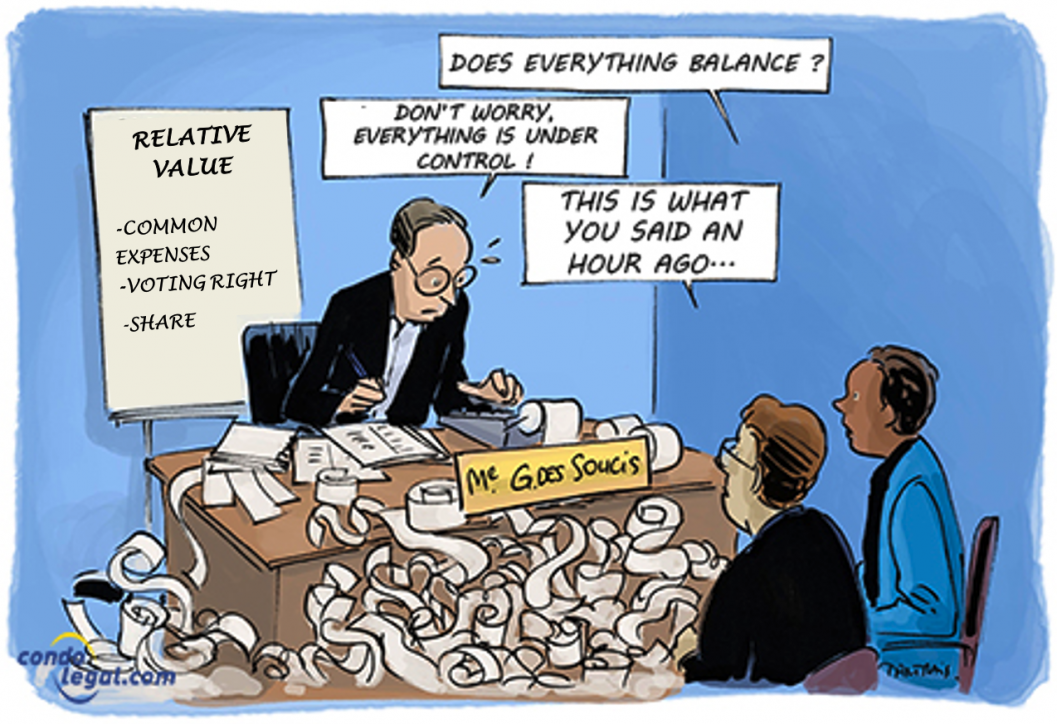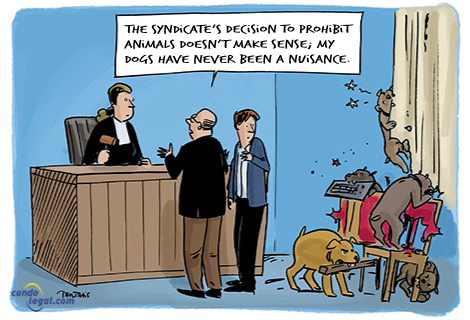 The municipal value of a property is often a basic measure of market value. With the increase in the market value of buildings, caused by a booming real estate market, a co-owner may have a clear interest in asking his municipality to change the value of his unit (to reflect its fair value). In this regard, an incorrect value of an apartment can lead to excessive tax bills or a depreciation of its market value. If you believe that your property assessment does not reflect the true value of your property, you can request a review.
The municipal value of a property is often a basic measure of market value. With the increase in the market value of buildings, caused by a booming real estate market, a co-owner may have a clear interest in asking his municipality to change the value of his unit (to reflect its fair value). In this regard, an incorrect value of an apartment can lead to excessive tax bills or a depreciation of its market value. If you believe that your property assessment does not reflect the true value of your property, you can request a review.
Unit of assessment
When an immovable is the subject of a declaration of co-ownership, each fraction constitutes a separate unit of assessment for the purposes of property assessment and taxation. It is a separate unit of assessment entered on the roll in the name of its owner. A co-owner's share in the common portions of the immovable is part of the assessment unit made up of his exclusive portion of the immovable. Thus, in the case of a divided co-ownership, property taxes are established based on the value of each private portion (e.g., an apartment or a parking space) to which is added the value of the share (%) of the common portions associated with it.
Actual value
Section 43 of the Act respecting municipal taxation defines the actual value of a unit of assessment unit as "... its exchange value in the free and open market, that is, the price most likely to be paid at a sale by agreement made in the following conditions: (1) the vendor and the purchaser are willing, respectively, to sell and to purchase the unit of assessment, and they are not compelled to do so; and; and (2) the vendor and the purchaser are reasonably informed of the condition of the unit of assessment, of the use that can most likely be made of it and of conditions in the property market. »
Revision
In the event of disagreement with the accuracy of the real value of the assessment unit, the presence or absence of an entry on the property assessment roll, it is then possible to request an administrative review from the municipal body responsible for the assessment before May 1 following the coming into force of the roll. The request for review must:
Notwithstanding the time limit described above, a request for review may be filed at any time during the fiscal year in which an event warrants a change in the roll occurs (e.g., a fire that has seriously affected the building) or in the following fiscal year, if the assessor does not make the change. In addition, a request for review that, due to a situation of superior force, could not be filed within the applicable time limit may be filed within 60 days of the end of that situation.
The municipal assessor to whom a request for review is made must then proceed to examine the validity of the grounds for dispute. This decision must be rendered no later than 1 September, with some exceptions. The evaluator can then grant the request and propose an amendment, or refuse it with reasons for his decision.
Recourse to the Administrative Tribunal of Québec
If the co-owner is not satisfied with the appraiser's decision, he or she may appeal to the Administrative Tribunal of Québec. The syndicate will therefore be impleaded. The time limit for requesting a review of a decision of the city's assessor varies depending on the reason given. It is important to note that the municipal assessment benefits from a presumption of fairness if the request for review is not made by the municipality itself. In order for the Administrative Tribunal to amend an assessment roll, it must find that there is an error or irregularity that is likely to cause actual prejudice.
The decision of the Administrative Tribunal may be appealed, with leave, to the Court of Quebec within 30 days of the decision of the Administrative Tribunal.
 WHAT YOU SHOULD KNOW ! Common portions and common portions for restricted use are not separate units of assessment and are not subject to real estate tax.
WHAT YOU SHOULD KNOW ! Common portions and common portions for restricted use are not separate units of assessment and are not subject to real estate tax.
 REMEMBER: The real value of a fraction of a condominium must be objective and not subjective, i.e. according to the personal opinion of the owner or according to its future speculative value.
REMEMBER: The real value of a fraction of a condominium must be objective and not subjective, i.e. according to the personal opinion of the owner or according to its future speculative value.
 ATTENTION! The right to apply for review is open to the owner of a fraction. It therefore does not concern the syndicate of co-owners, unless it is a co-owner of a fraction and acts as such. However, the latter must be called into question in the event of a legal challenge to the valuation of a fraction by a co-owner.
ATTENTION! The right to apply for review is open to the owner of a fraction. It therefore does not concern the syndicate of co-owners, unless it is a co-owner of a fraction and acts as such. However, the latter must be called into question in the event of a legal challenge to the valuation of a fraction by a co-owner.



